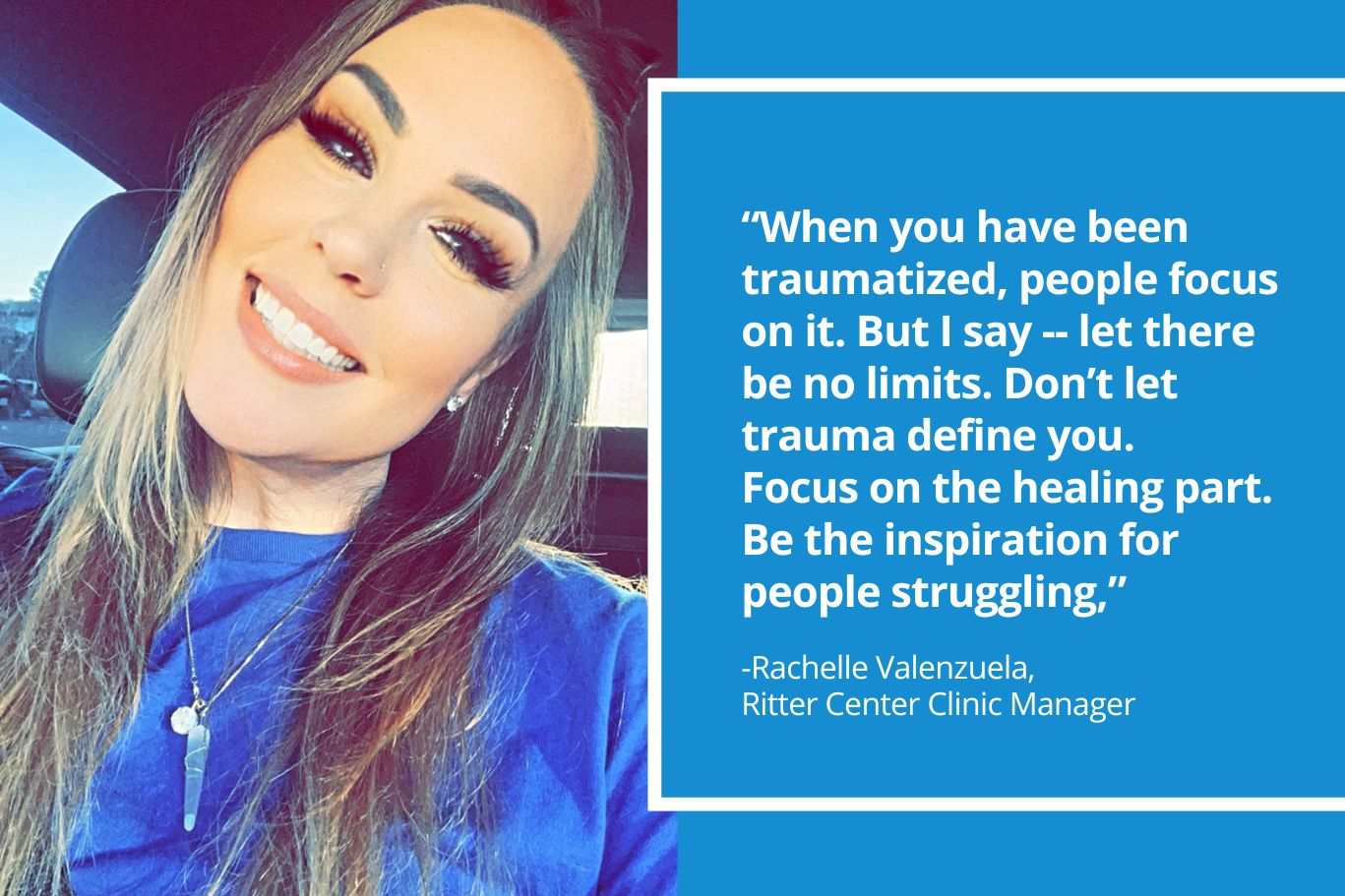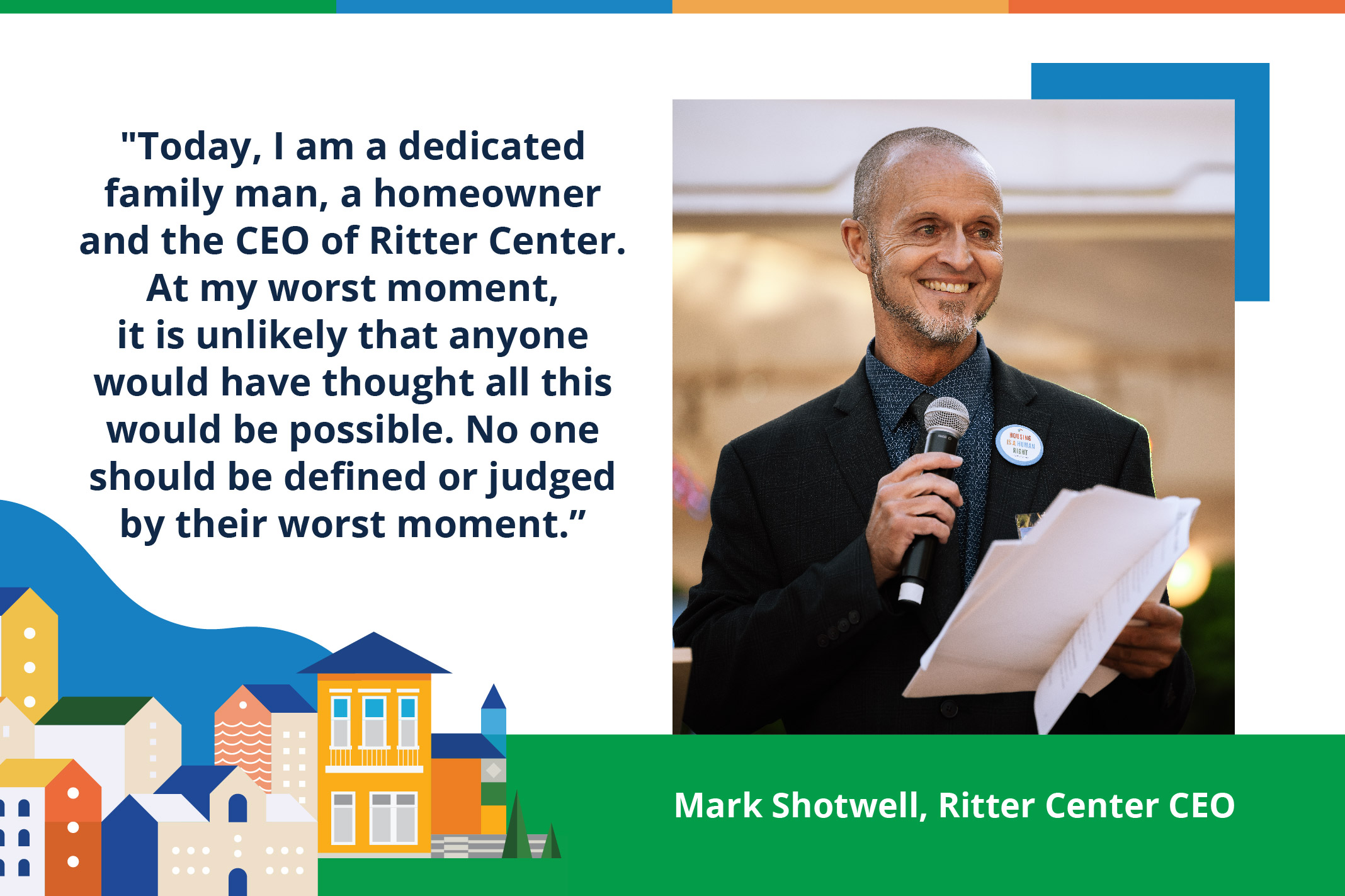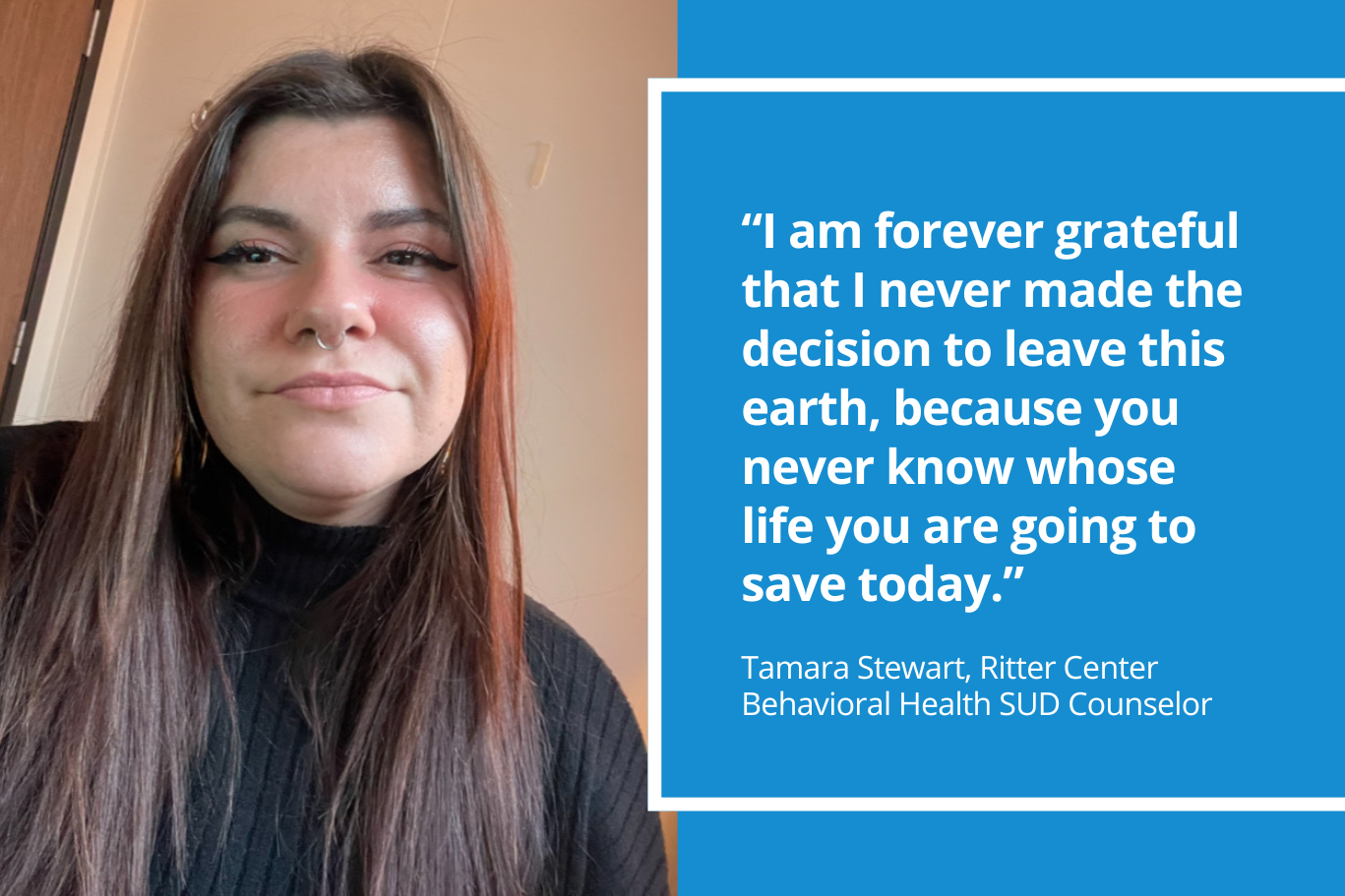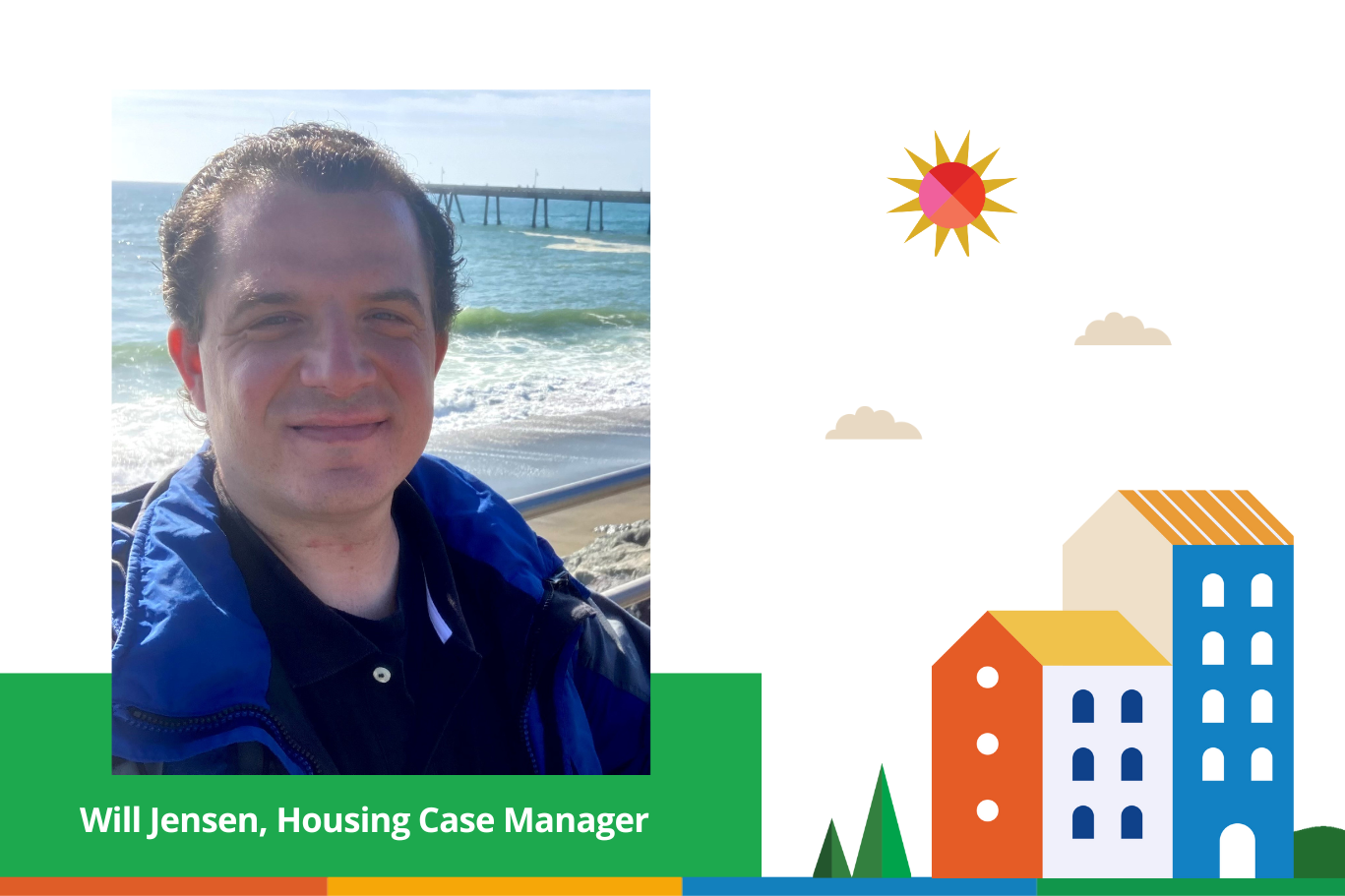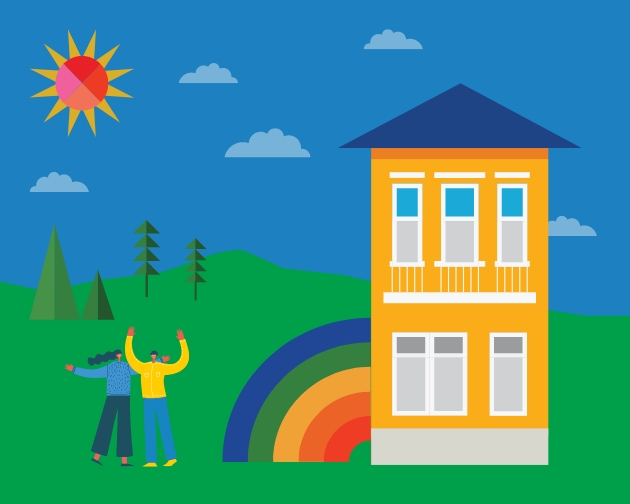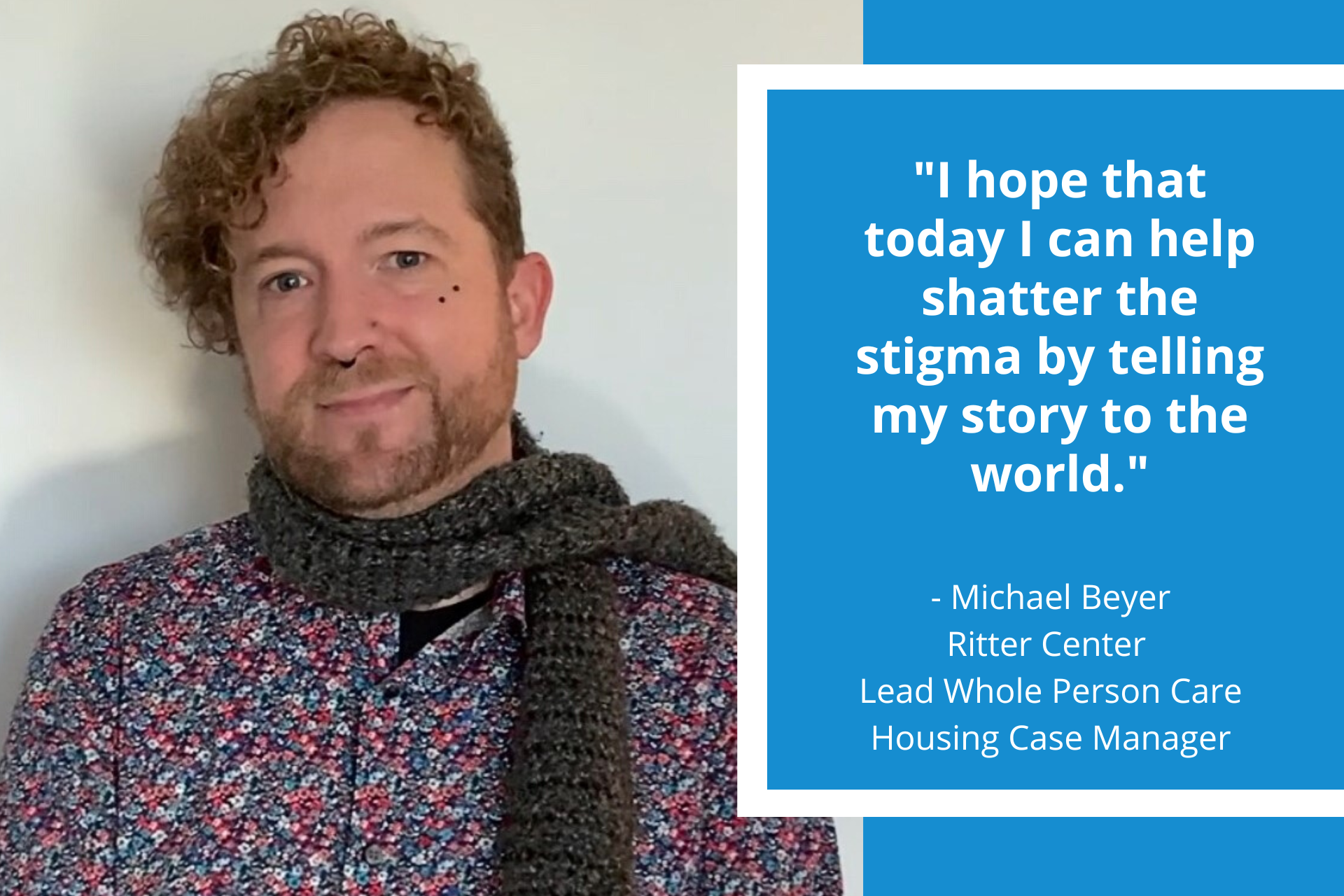
Shattering the Stigma of Mental Health
Michael Beyer is Ritter Center’s Lead Whole Person Care Housing Case Manager. Michael bravely shared their own story to shatter the stigma of mental health.
“One thing that strikes me about the field of social services is that there is a culture which exists that encourages and embraces professionals who share their stories of recovery around addiction and that such openness is perceived as a strength, instead of a weakness, and that it is an important piece of their personal recovery. However, I have not observed a parallel for professionals who have experienced mental health challenges; rarely do professionals in this field share how they struggled and learned to successfully manage their own mental health challenges,” said Michael.
“Growing up, I recall being a silly, playful, and outgoing child. However, around the age of 7, I recall my life drastically changing; I became profoundly unhappy, withdrawn, and disinterested in things that I previously enjoyed. I was confused about what was happening, as were my parents. I think bullying was a large contributor; reflecting back, I was non-binary even then, and that played a role as to why I was ostracized by peers. Mental health problems are prevalent in our family, which suggest a genetic component, but there was intergenerational and situational trauma, that also impacted me.”
“Around the age of 8, a school counselor advocated for me to my parents that I be taken to the hospital, as I was having thoughts of suicide and she was fearful for my safety. I was hospitalized for a period of time, and I began receiving care from a therapist and psychiatrist. I have suffered from episodes of major depression throughout my life multiple times since then. However, as I have learned to manage my mental health, there has been an upward trend.”
“Episodes became shorter in duration and fewer and far between, in terms of frequency. In fact, I did better in junior high, but high school was extremely difficult for me, and resulted in my becoming hospitalized a handful of times. My parents did a lot of advocacy at the school for me, but the school environment was very painful for me at the time. There was a lot of bullying and general lack of mentorship in the educational system that ultimately caused me to skip a lot of school days. Simply put, it was very stressful, and I did not feel safe being there. I would often wake up and dread going to school. Fortunately, my parents and siblings have always been emotionally available and incredibly supportive and instrumental in my recovery.”
“Being identified with a mental health condition, at first was another significant blow to my self-esteem, with feelings of inadequacy in my relation to peers. On the other hand, it was also a revelation that my depression was something that was outside of me; Something that I could do something about, where I could receive help in various ways.”
Michael found that this experience started to affect their feelings of competence and their sense of self-efficacy. They started a downward spiral around schoolwork and began to withdraw more and more from school, both literally and figuratively. They eventually switched to homeschooling.
“I had so much support in my life. I am so fortunate and grateful that my parents could get me into treatment. They were always there to go to bat for me. That is not the case for many people, particularly if they are low income,” said Michael.
“This is my way of giving back, working at Ritter Center. I can share the hope and healing that folks can, with time, learn to know oneself better and with experience, one can draw upon the coping skills they have acquired. We can all begin to recognize warning signs, and the need to reach out for support. Basically, all of that learning and unconditional love that I received has made me really passionate about helping others. I provide mental health support at Ritter Center to people who have suffered chronic homelessness, who often times come from broken families and relationships with trauma and profound loss in their histories, before they became homeless. When all of these variables come together, one can get stuck in a cycle of hopelessness,” said Michael.
“I can support individuals in seeing through the stigma and past society’s distorted view of mental health needs. At first there can be a lot of resistance, as in feeling that I’m not that person or I don’t have that type of thing. I don’t have that problem, which is a very valid feeling. It was hard for me to come to acceptance with the concept that this could be something I have to deal with on and off for the rest of my life. Despite this, I can share my story, and I wish that I can bring empowerment to others to share their stories. I haven’t had any hospitalizations for the last 15-20 years. These struggles have made me stronger and a more resilient person as a result. In my teens, I never imagined that this life could be possible. If I didn’t have my parents going to bat for me, I would have been at risk of dropping out, and then there could have been a different probable outcome without their support. I hope that today I can help shatter the stigma by telling my story to the world,” said Michael.
“My first involvement in the field of mental health was when I volunteered at Marin County’s Suicide Prevention line, where I served the community for around 2 1⁄2 years, while studying towards an undergraduate degree. Those experiences really solidified my desire to pursue a career in social work, where I was supporting others experiencing thoughts of suicide and hopelessness, as I had. This makes it profoundly meaningful to be able to hold and share hope with people, as others had for me, when I could not see it at the time,” said Michael.
Thank you Michael for sharing with such honesty and courage! This will make a tremendous impact on so many lives.

